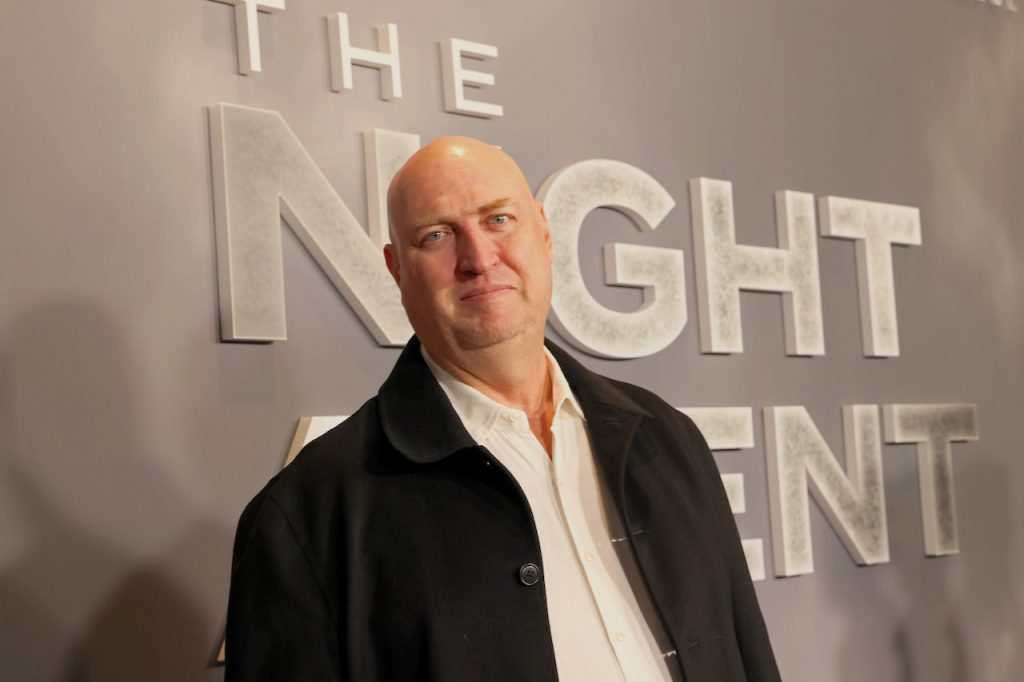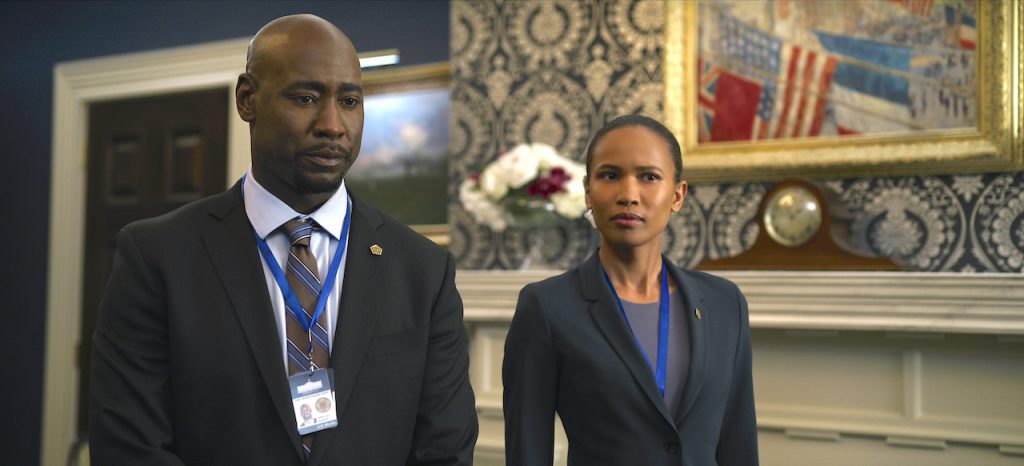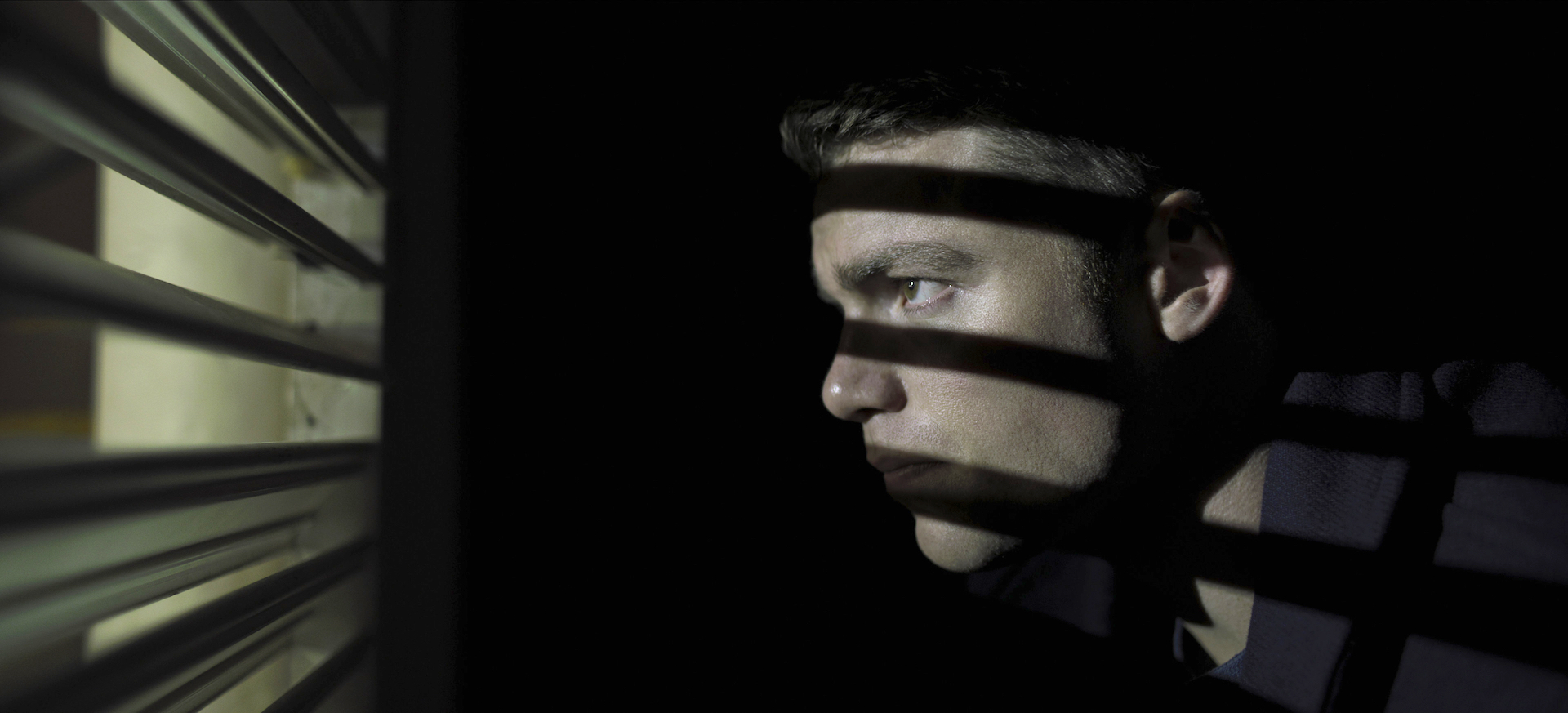Shawn Ryan is a veteran television writer and showrunner. The Rockford, IL native can’t be pinned down to one genre, though. While he broke ground with The Shield, he’s had a slew of shows, (including Lie to Me, The Get Down, and Gone Hollywood) that are just as hard-hitting and popular.
His latest foray is into the realm of the political thriller, à la Tom Clancy or Robert Ludlum. Based on a novel by Matthew Quirk, The Night Agent stars Gabriel Basso, Luciane Buchanan, Fola Evans-Akingbola, Hong Chau, and Sarah Desjardins. This ten-episode, hard-boiled, artfully-crafted actioner is a throwback to the intimate thrillers of the 90s and early 2000s.
Shawn recently spoke with us about developing The Night Agent for Netflix and acting as showrunner.
How He Got Involved with The Night Agent
I’m always looking to do something different than I’ve done before. I’ve always loved the political thriller space. I’d never written one or done one. I was presented with the book during the pandemic. I read it and loved it. One of the things I liked was I could immediately tell certain things should be part of the TV show and others should be left in the book. It became very clear to me what was usable.
I’d been working on my own secret service idea for about a year prior to that and didn’t have enough material to make a show on its own. But I thought there was a way to combine what I’d been working on with this material and have enough for a whole TV season.
What I would say intrigued me the most about the book was obviously great twists and turns and a great hook in terms of Peter working in the basement of the White House manning a phone that never rings. The characters of Peter and Rose are great. But the thing that really got me and made me want to do it was very personal for me. It was the idea of Peter wondering what the truth was about his deceased father.
Was his father really a traitor or not? I’d had an experience where my father died suddenly back in 2015 and when my brother and I went back to clean out his house, we found some newspaper clippings of things that he’d saved that made me curious about aspects of his life that I was now unable to ask about. So, I was intrigued with the idea of a son who really wants to know the truth about his deceased father. To me, that’s the emotional hook that hopefully elevates this above just a plotty, twisty, political thriller.
Is Peter Renfield’s Position a Real Job?
I asked Matthew if Peter’s position is real and his response was it could be, but if it is, it’s so secret, we would never know!
The Challenges of Adapting a Book
I had done it in the movie space. I had done an early pass of a Tom Clancy book. I had adapted a book for a TV pilot that didn’t get made. I think this is the first time I’ve adapted something and it’s aired like this. In many ways, I think adapting a project is harder than writing something original because you’re trying to honor what exists in the book. You can become too much of a prisoner to it or not honor it enough. You’re trying to find that middle ground. For people who read and loved the book, you’re going to want them to love the series, but also have new stuff. You feel an obligation to keep certain things in place. Whereas, when you’re writing an original screenplay, you can go wherever your imagination can take you.

Shawn Ryan. Photo by Rodin Eckenroth/ Getty Images for Netflix
The way I decided what to include and omit from the book is instinctual… it’s on a gut level. The metro bombing that happens in the book is a thing that happened in the past that’s referred to. I thought that should be the inciting incident of the show. Then I also started to think about that in this age of conspiracy theories, if a guy whose father is an accused traitor was on a metro where there was a bombing, there would be some element of conspiracy theorists who would think he wasn’t the hero but the bomber. It’s taking those elements of the book and extrapolating what Matthew Quirk could contain in a few hundred pages to be able to tell a bigger, wider story. I love the characters of Peter and Rose. I love that he’s a rule follower and she’s a rule breaker and that the two of them have to learn how to be a little more like each other in order to survive. I love the White House political intrigue.
Heroes aren’t born. They answer the call
It only took me three days to write the pilot, but it took me about three months to think about everything I wanted to write. I don’t start writing until I have it all outlined on a legal pad where I know what I want each scene to be.
I write very fast, but only after I’ve thought about it a lot first
On Writing for a Network vs Steaming Platform
You have to treat structure differently for both. So, for instance, when I made The Shield, those have commercial breaks. We always wanted to write a really hooky moment at the commercial break. That was a teaser in 4 x. I always felt the most important scene in a show was the final scene of Act III because people will stick through that final batch of commercials and they’re going to see the preview for next week’s show.

Erik (D.B. Woodside) & Chelsea Arrington (Fola Evans-Akingbola) Photo courtesy of Netflix
On a Netflix show, you don’t have those commercial breaks. You don’t have to build it, but you have to remind yourself that the show can’t be too flat for 40-something minutes. Easily, the most important scene in a Netflix series is the final scene of the episode where you want to use the final scene to make people look at the episode in a different way and realize something new.
On The Challenges of Being a Showrunner
The first show I ran was The Shield back in 2002. So, I’ve had over twenty years of experience with more than ten shows.
On The Night Agent, we’ve had a lot of productions challenges. This was a show that had a lot of night shoots. We were filming in Vancouver in the winter, so it tended to be dark very early, cold, and very wet. We were filming during COVID, so some COVID cases would pop up that meant people had to sit out for seven to ten days and we’d have to juggle our schedules around.
We were filming multiple episodes at once with different directors and different crews. It was challenging, but we had a great production crew so everything worked out. From a writing standpoint, I’m not used to writing every single episode of a series before filming even begins, so that was challenging.
When I’m hiring writers for the show, I don’t look for the same thing from all of my writers. I want a variety of writers so that we have a team of different outlooks and different perspectives. I like people who have different life experiences so there’s no one type of writer I’m looking for. I’m looking for a group of writers that will make a good team. You don’t want everyone to be an introvert. You don’t want everyone to be an extrovert. You want people who are very strong on the page. You want someone that’s really good in the room suggesting ideas. I also tend to look for people who are also just good human beings because if I’m going to spend numerous hours with these people, I’d rather not be around a**holes. I want people who believe in the collaborative process of television.

